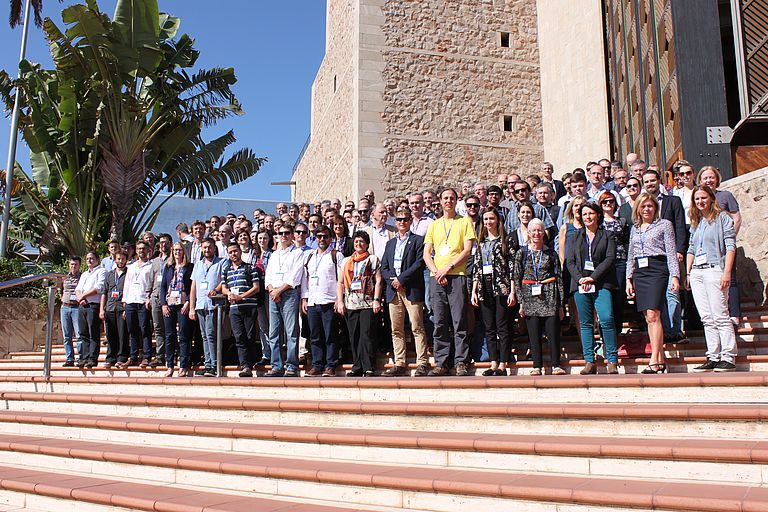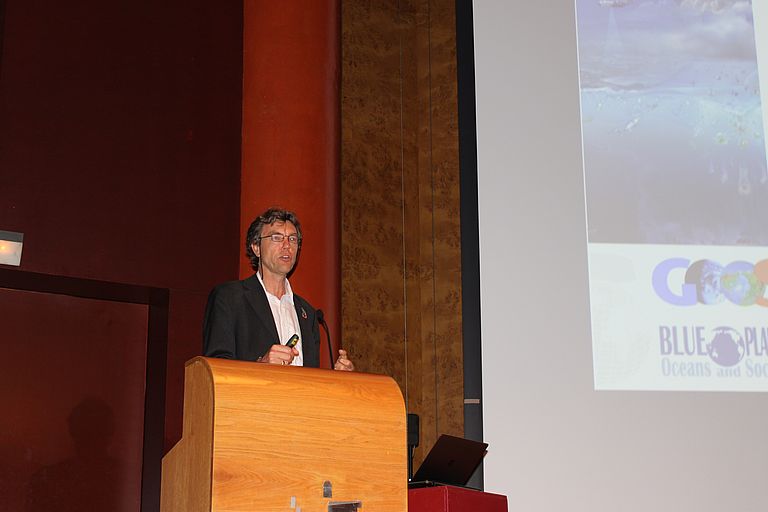Third AtlantOS General Assembly meets in Gran Canaria
150 experts discuss innovative observation strategies for the Atlantic ocean
23. November 2017 / Gran Canaria. The Atlantic Ocean covers about one fifth of the Earth's surface. Almost 100 states border on it or on one of its marginal seas. The ocean supplies food to them all, it influences their weather and their climate. It is an important traffic route and sometimes it causes hazards by extreme events like hurricanes or droughts.
Two years ago, 62 partner institutions from 18 countries joined forces in the European Union’s funded project AtlantOS to improve and optimize the observation system of the Atlantic and thus expand the knowledge of it. This week, the partners meet for the 3rd General Assembly in Gran Canaria (Spain). “Especially with such a large project with so many participants, internal as well as external coordination is important,” emphasizes the project coordinator Prof. Dr. Martin Visbeck from the GEOMAR Helmholtz Centre for Ocean Research Kiel. Therefore, the meeting is dedicated in particular to optimize the exchange between the several work packages but also to the various initiatives that are engaged in Atlantic Ocean observation. In addition, there is one day with a special focus on the discussion on latest developments in sensors and observation technologies, to which numerous companies are invited. Host of the 3rd AtlantOS General Assembly is the research institute PLOCAN (Plataforma Oceánica de Canarias).
The overall goal of AtlantOS is to improve and innovate the observing system of the Atlantic. Since the ocean is a highly complex system in which all components are closely linked, only joint efforts by many scientific disciplines and nations can improve the understanding of this system. AtlantOS supports activities for the sharing, integration and standardization of ocean observation data across disciplines and countries. In addition, by optimizing existing observation networks and using new technologies and increased multidisciplinary cooperation, the project aims to reduce the cost of ocean observation. In the end, data and information products from the Atlantic should be available to researchers, companies, politicians and citizens in a simpler, more extensive and better quality than before.
“The 3rd AtlantOS General Assembly provides an excellent opportunity to bring together the multidisciplinary consortium and AtlantOS members to discuss the achievements and impact of the first and second phases. In doing so, we can strategically plan and improve synergies within the AtlantOS community and observation systems in other oceans,” emphasizes Professor Visbeck.




